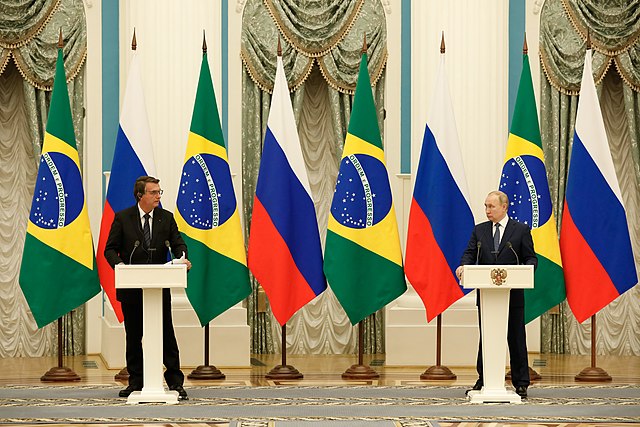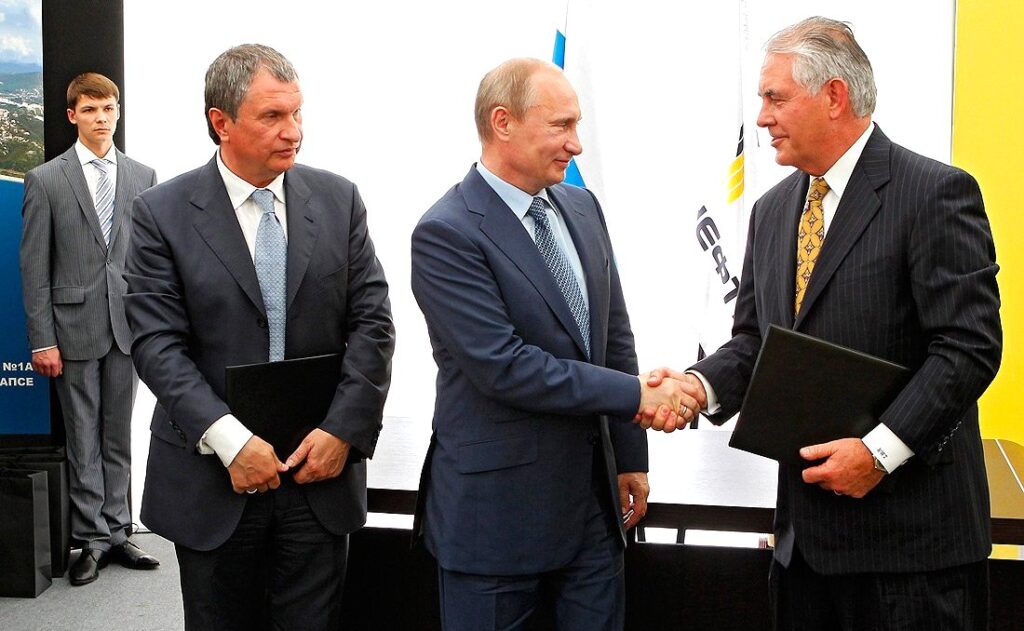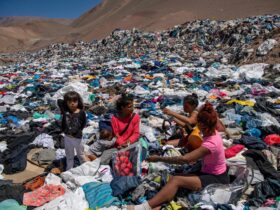The recent Russian invasion of Ukraine has shocked the world, both for its indiscriminate violence against civilians and for Russian President Vladimir Putin’s blatant disregard for national sovereignty. Yet, not every region of the world has reacted to the events in Ukraine with the same outrage as the United States and the rest of NATO, who have stood firmly against Russia and worked to slow the Russian advance through aggressive sanctions and billions of dollars of military and humanitarian aid. Latin America, in particular, has seen a stark—but unsurprising—divide in its response to Putin’s aggression. Many countries in the region foster deep ideological differences with the Global North and have gradually built stronger relations with the Kremlin over the past decades.
Latin American countries can be divided into three distinct categories in terms of their recent relations with Russia and current positions on the war in Ukraine. The “Historic Russian Allies,” which are made up of Cuba, Venezuela, Nicaragua and Bolivia, are heavily reliant on Russia economically and politically. Thus, they have stood with Russia during the invasion and have refused to condemn Putin, instead blaming the United States, NATO and supposed Ukrainian “Nazis” for the war. The second category, or the “Major Players,” consists of Brazil, Argentina and Mexico. These regional powers are united in their opposition to U.S. sanctions on Russia and have yet to forcefully condemn the invasion, however, continue to hold very strong ties to the United States even as they draw closer to Russia and Putin. The third and final category is the “Strong U.S. Allies,” best exemplified by Chile and Colombia. These nations are not closely tied, politically or economically, to Russia, and have so far issued strong and consistent repudiations of Russian actions in Ukraine across their national political spectrums.
Billions of dollars in contracts, joint projects in various industries and state-of-the-art technology transfers—this is what has brought Russia and Latin American countries together over the last decade. Today, Russia has diplomatic relations with all the 33 countries in the region, and it holds written agreements based on new cooperative principles with 18 of them, a significant achievement for Russian foreign policy. Given that nothing of this kind has ever existed before, some Russian analysts are predicting a new “golden age” for Russian-Latin American cooperation.
Russian objectives in Latin America are twofold: to undermine the U.S.-led liberal international order and the West’s cohesion, and to enhance Putin’s domestic legitimacy by demonstrating Russia’s status as a global power. These objectives are achieved through the promotion of specific Russian commercial, military and energy interests.
Russian efforts to forge closer relationships with Latin American countries are not just a recent endeavor. The nation’s work to improve relations with Latin America began seriously in the early 2000s and has increased at an unprecedented pace throughout the last 20 years. Thought to have begun this push were President Vladimir Putin’s visits to Cuba in 2000, and Mexico, Brazil and Chile in 2004. Of almost equal importance were his contacts with Latin American leaders at international forums such as the UN and Asian-Pacific Economic Cooperation (APEC). The leaders of Brazil and Mexico also took part in meetings on the margins of the G8 summit in St. Petersburg in July 2006, which cemented their relationship. In 2007, Russian interaction with the Latin American and Caribbean countries was already said to be of a “comprehensive nature and [taking]into account Russia’s long-term interests.”
This Russian “advance” into a region traditionally seen within the sphere of influence of the United States has placed top U.S. officials on alert in recent years. As White House Chief of Staff John Kelly testified before the Senate Armed Services Committee in March 2015 in his capacity as head of the U.S. Southern Command (the arm of the U.S. military responsible for operations in Central and South America): “ Under President [Vladimir] Putin, however, we have seen a clear return to Cold War-tactics. As part of its global strategy, Russia is using power projection in an attempt to erode U.S. leadership and challenge U.S. influence in the Western Hemisphere.”
Historic Russian Allies: From Communism to Authoritarianism
Out of the 35 countries that abstained during the March 2 UN vote to condemn Russian aggression in Ukraine, there are unsurprisingly long-standing Russian allies like Cuba, Nicaragua, and China. More interestingly, Bolivia and El Salvador were also among the Latin American countries that abstained. Venezuela was not on the list only because it could not cast a vote, as it had not paid its membership dues. Those five Latin American nations, but especially Cuba, Venezuela, Nicaragua and Bolivia, have long been Russia’s strongest partners in the region and enablers of the superpower to slowly expand its influence in the Western Hemisphere.
As Russia regained global superpower status throughout the 2010s, it pursued a very visible foreign policy of establishing closer ties with states openly critical, even hostile, to the United States and to U.S. interests. In Latin America, this policy manifested through the expansion of economic ties with Cuba and Venezuela. The 2013 “Concept of Russian Foreign Policy,” approved by Putin, laid out the defensive realism within the “Putin Doctrine” and called for increased Russian interest in engaging with Latin America in the twenty-first century, with special stress on bilateral relationship with Cuba. Russia immediately got to act on its plan. In 2014, Russia granted Cuba massive debt relief, forgiving $32 billion of Soviet-era debt, and has also provided Cuba with oil in times of need. Moscow has repeatedly helped the financially strapped Cuba with loans, lending it $2.3bn over recent years. While the importance of Cuba to the Kremlin has yet to return to Cold War levels, the change in Russian foreign policy based on the “Putin doctrine” has been vital to this phenomenon.
Russia has followed the same debt relief policies that it has in Cuba with Nicaragua under President Daniel Ortega and with Venezuela under both former President Hugo Chavez and current leader Nicolás Maduro, along with strong international diplomatic support of the two countries. Venezuela has become the number two buyer of Russian military equipment in the world after India. The strong relationship formed between Putin and Chavez over the 2000s decade was key for constructing a deep connection between the two countries. While shared anti-American interests were part of it, it was Venezuela’s vast oil wealth that enabled the relationship to flourish.
In fact, during the first months of Russia’s invasion of Ukraine, Maduro and Venezuela have been one of Putin’s closest supporters. Maduro has repeatedly accused both NATO and the United States of provoking the conflict through their “expansion” policies. Maduro’s current staunch pro-Russia and pro-Putin views demonstrate one of the major successes of Russian foreign policy and diplomacy in Latin America.
Possibly even more closely aligned to Russia is the Central American country of Nicaragua. Ortega, a leftist revolutionary who led the country from 1979 to 1990, returned to power in 2007 and has gradually pushed the country towards authoritarianism. Ortega continues to be an outspoken defender of Putin and critic of American influence in Central America. In February, Ortega was one of the first world leaders to back Putin’s move to recognize the independence of Donetsk and Luhansk, showing unwavering support for Russia’s stance on Ukraine. Over the last fifteen years, Ortega has cemented Nicaragua as “Russia’s most steadfast political and military partner in the region.”
Although not to the level of Cuba, Venezuela and Nicaragua, Bolivia has also proven to be a reliable partner to Russia in Latin America, especially under former President Evo Morales. Much like Ortega, Morales and Bolivia have aligned themselves ideologically with Russia, expressing a strong anti-American influence, or “imperialism”, stance. In exchange for Bolivian political support, Russian energy giants Gazprom and Rosatom are active in the country, operating two gas fields and participating in a joint nuclear research and technology center project in the city of El Alto, respectively. In the past months, Morales has been especially outspoken in Putin’s defense, blaming the United States for “confronting” Russia and Ukraine.
Through the region’s staunchly authoritarian leaders, Russia has gained an impressive foothold in Latin America in the 21st century. Yet, Putin’s diplomatic efforts do not stop at the countries that are his strong allies. He has also gained some significant influence within Latin America’s regional powers.
The Major Players: Strengthening Political and Economic Ties with Putin in America’s Shadow
After the United States, Mexico, Brazil and Argentina are undeniably the three next most powerful nations in the Western Hemisphere. Together, they make up almost 4% of global GDP. Recently, Russia has increased its engagement with all three nations with the goal to secure advantageous trade deals and political cooperation.
In Mexico, Russia has mostly worked in the direction of trade development between the two countries, as well as the improvement of bilateral cooperation in the fields of aviation, energy, transportation, culture and education. Even though the two countries hold common ground on a number of key international issues, Mexico and Russia have so far failed to form an optimal and productive model for bilateral relations, demonstrating that Russia has not been fully effective and successful everywhere in Latin America.
Although there has been some criticism of Russia, Mexico abstained in the April 7 UN General Assembly vote to suspend Russia from the UN Human Rights Council. President Andrés Manuel López Obrador, or AMLO, also publicly stated that same morning that he would not support the resolution, proving that AMLO is calling the shots and siding with Putin over the United States.
The traditional Latin American leftist ideology seems to be paramount in AMLO’s decision. The traditional left tends to always support policies that push back against “Western imperialism”, but it is also skeptical of liberalism and what it perceives as its institutions and stakeholders, which — like many authoritarian regimes — it considers to be tools of Western hegemony.
On the contrary to Russia-Mexico relations, Russia-Argentina ties have been continuously strong since Stalin. Over the past decade, the relationship has fully demonstrated its continuity, especially after the emergence of some completely new forms in the relations between the two countries, including a statement from both parties regarding a transfer to a strategic partnership, elimination of visas for the nationals of both countries, declaration of the year 2015 to be a bilateral Year of Culture of Russia and Argentina, among other political and cultural exchanges between the nations.
Argentinian President Alberto Fernandez has sought a partner in Putin to help him solve Argentina’s grave financial and economic issues. In a recent meeting with Putin, he expressed his belief that Argentina needs to stop depending on the International Monetary Fund (IMF) and the United States. Argentina owes the IMF over $40 billion, and Fernández sees Russia as having an essential role in this transition. Thus, at the start of Russia’s invasion of Ukraine, Fernández spoke only of ‘warlike confrontations’ and pleaded for dialogue and respect for the sovereignty, territorial inviolability and security of all parties, failing to condemn Russia or Putin for the violence and loss of life. It also comes as no surprise that Argentina did not sign the OAS declaration condemning the Russian invasion of Ukraine.
In Brazil, the 2018 election of Bolsonaro threw a curveball at Brazil-Russia relations. A right-wing populist with autocratic aspirations, Bolsonaro has repeatedly publicly acknowledged his admiration for former American president Donald Trump and Vladimir Putin. Thus, Russia has increased efforts to engage with Brazil under Bolsonaro to discuss potential expansions of trade and security agreements. Putin has even referred to Brazil as Russia’s most important partner in Latin America, as they collaborate on defense, agriculture, oil and gas.
Although Brazil—like Mexico and Argentina—are close friends with the United States, Bolsonaro has declared himself ‘neutral’ on the Ukraine issue. This closely resembles remarks made by Putin’s closest allies on the continent, like Maduro and Ortega. Yet, economically, supporting the war makes little sense for Brazil. Rising prices for both energy and agricultural commodities will negatively impact local economies in the middle term. Further, Brazil will have increased difficulties accessing certain goods such as fertilizers, of which Russia is a major exporter to South America.
Brazil and Mexico’s position is becoming the most followed path for Latin American countries, leaving them in a difficult position. The two countries, along with Argentina, have declined to impose economic sanctions on Russia or condemn the Russian invasion. They also have no concrete plans to cut diplomatic ties, even though their representatives voted in favor of the UN Resolution to condemn the invasion. Is a symbolic stand—but a practical neutrality—the future of Latin America in relation to the war (and other possible Russian aggressions)?
Strong U.S. Allies: Standing Against Invasion, From the Democratic Socialist to the Neoliberal
“We will take a clear position of respect for human rights and international law and humbly advocate dialogue and cessation of hostilities, and we are talking with the Ukrainian representative in Chile to see how we can provide some assistance,” newly inaugurated Chilean President Gabriel Boric recently said. This point of view on the conflict has become rare in Latin America, as most of its countries refuse to speak up condemning the Russian invasion. Boric has been the only leftist Latin American president to criticize Putin directly, demonstrating that while Russian diplomatic efforts in Latin America have been exceedingly strong, U.S. diplomacy and values still resonate with some parts of the continent.
Colombia, another longtime U.S. ally, and its conservative president Iván Duque has also harshly condemned Russia, “categorically reject[ing]” Russia’s attack early on February 24, saying it “threatens not only [Ukrainian] sovereignty but also world peace.” He called for the “immediate withdrawal” of Russian troops from Ukraine. Since the invasion, Duque has not wavered in his condemnation. In an interview on April 9, he affirmed that Colombia will cease diplomatic relations with Russia in the near future in response to its “genocide” of Ukrainian citizens.
The importance of these two countries standing with Ukraine, the United States, NATO and human rights cannot be understated. It goes to show that a lesson must be learned by the U.S. government. Archaic views on Latin America as exclusively under the U.S. sphere of influence may have applied during the Cold War, but no longer. Yet, it is still possible for the United States to shift some of its attention to a region that it has collaborated increasingly less with over recent decades. Until Russia invaded Ukraine, Washington seemed to pay little attention to Russian influence in Latin America.
Thus, what incentive does much of Latin America have to stand with the United States? On the other hand, for Russia, these new Latin American friends represent critical components in its efforts to establish a long-term security threat for the United States by providing leverage. Russia can now possibly state that, depending on how the United States and NATO act near its border, Russia would be able to engage its allies in the region in ways that threaten the national security of the United States.







